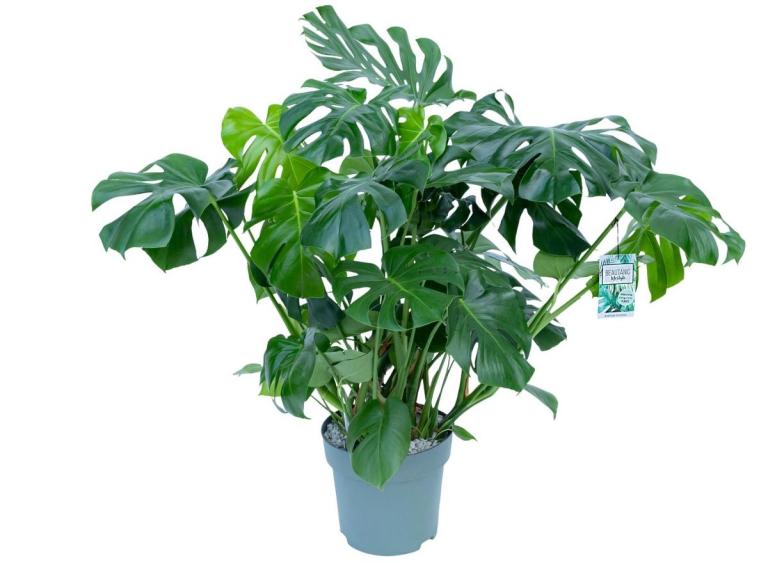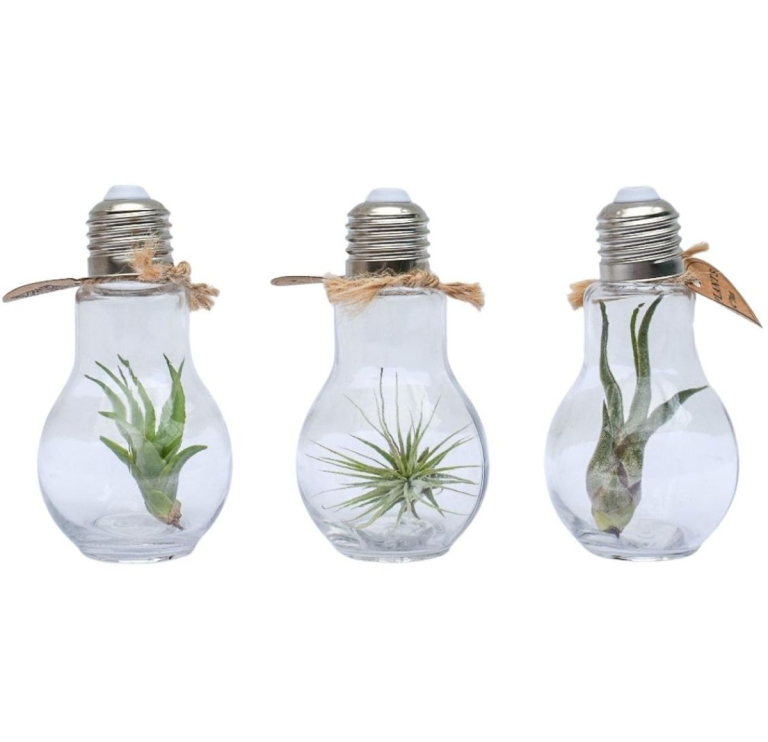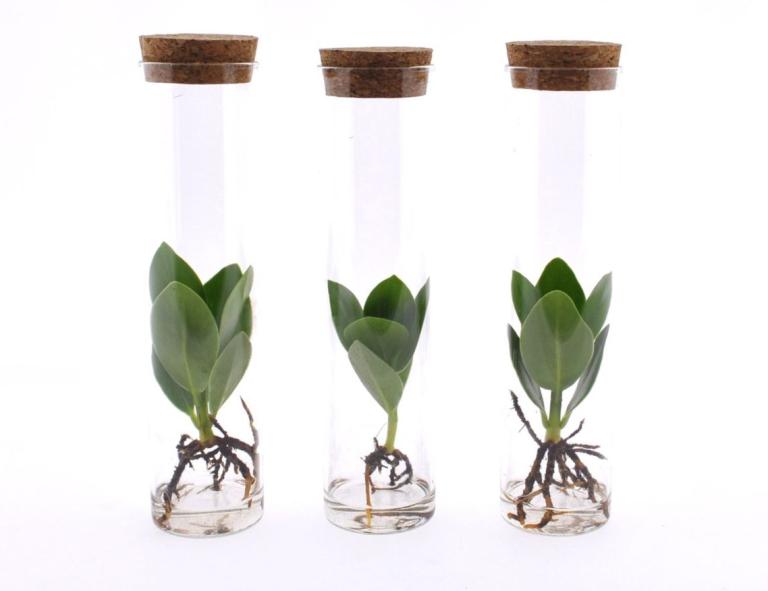Soil-Free Houseplants
No soil necessary!
Growing houseplants without the use of compost, in glass jars, on volcanic rock pellets or simply in air, is a super stylish and greener alternative to growing plants in soil and easy to care for!
If you are looking to try out this trend, read below for some essential tips on the varieties of soil-free houseplants:

Hydroponic (Hydro) Plants
Hydroponics is a method of growing plants using a water-based nutrient solution rather than in soil. Roots grow into a liquid solution that is fortified with all the essential nutrients for a healthy plant. Our range of plants are sustainably grown on volcanic pellets. Each plant comes in a pot with a handy water indicator which shows when the plant needs watering. The watering container contains a reservoir of up to 1.5L of water which is a built-in watering system, so no need to water for at least 2 weeks.
Tip: These plants get their nutrition from the water, so feed regularly with plant food.

Air Plants
These pot less plants grow naturally in the wild on trees and rocks, attaching themselves to surfaces. They absorb moisture through their specially adapted leaves. Air plants can be used to create simple table centrepieces or attached to pieces of driftwood for an air plant feature display.
Tip: It's best to soak air plants in a container of water for around thirty minutes once every seven to ten days. After soaking, remove any excess water by shaking the plant to keep it in top condition.

Aqua Plants
Aqua plants are plants that can grow in water indoors without soil. Growing your own is simple to do and many popular houseplants can grow in a container of water. Simply put the roots of your plant into water—making sure the foliage isn't also submerged—and watch as they flourish. This takes away any worries about forgetting to water your houseplants too! Growing plants in stylish glass jars and vases blends perfectly with bathroom, kitchen and living room décor.
Tip: Change the water on a regular basis. It's ok to use tap water, but if the water is heavily chlorinated, allow the chemicals to evaporate for a few days before you use the water. Also use a water-soluble fertiliser to provide nutrients and keep your aqua plants healthy.
